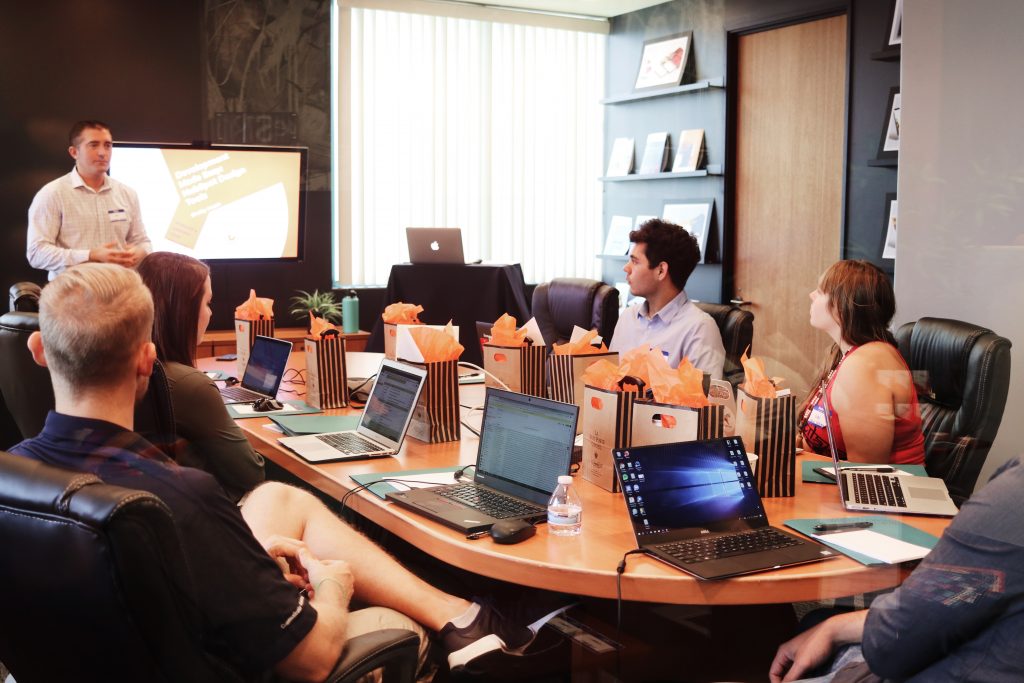
This disconnect is acutely felt on the hiring front. According to the US Chamber of Commerce, 98% of US-based chief academic officers are confident they are preparing students for the workforce. Yet only 11% of business leaders agree.
Aspirations of young people matter. And businesses can help!
The findings point to a weakness in career guidance offered at secondary and tertiary learning institutions. So, do businesses have a role to play in strengthening career guidance in schools?
In a word, yes. After all, who is better positioned to know? Or most trusted? According to The Careers and Enterprise Company, UK, “The UK Government’s Careers Strategy places employers at the centre of careers education for young people.
This is because of the compelling evidence that exposure to business has multiple impacts, including a positive effect on young people’s aspirations, awareness, skills as well as their attitude to studying.”

Much is being written on the need for companies to reskill existing employees. It is now imperative for businesses and employees to direct that knowledge toward collaborating with schools to upskill the future workforce.
Three R’s: rigor, relevance, and relationships
Fortunately, there are organisations poised to help. UK-based Education and Employers provides an online platform connecting schools and work sector volunteers, for, in their words, “Young people aspire to be what they see around them in their everyday life but it’s difficult to aspire to a future you never see and don’t know exists.”
In Australia, the non-profit Australian Business and Community Network (ABCN) partners business with education through structured programs which involve corporate volunteers mentoring students in the workplace.
In the US, one such initiative is the National Academy Foundation (NAF). Its mission is to facilitate paid internship opportunities for its network of 500 academies (and 60,000 students).
Charlie Katz, Director of Corporate Engagement, says business partnerships can address the new Three R’s: rigor, relevance, and relationships.

A lack of relevance is a key reason why so many students today drop out of school, especially in urban areas where many of the NAF academies are located.
However, by building strong partnerships with over 2,500 businesses across the country, NAF has seen their graduation rate soar to 97%.
And, businesses can help provide a more rigorous and skills-based curriculum, highlighting employability skills like teamwork, communication, and presentation skills among others.
And they provide students with the third R, relationships. Relationships are not only important in the job market, but also to their personal lives—students gain access to role models they many not otherwise have.
Every little helps
The scale of involvement can range widely. For example, the US Chamber of Commerce manages two options for individual students in its Business Lead program – a Fellowship Program and Career Readiness Lab. It also offers the far grander Talent Pipeline Management initiative, which is a demand-driven, employer-led approach that builds pipelines of talent aligned to dynamic business needs.

It is a blueprint for entire communities and cities – local government, education providers, and area businesses – to collaborate in creating essential skills training for growth-sector jobs available in a specific locality.
On the other end of the spectrum, it can be as small a gesture as explaining your job to a class of students. And tying what you do with what they are learning, whether it is English, maths, science, foreign languages, or any other subject relevant to your work.
As the NAF explains, “We recommend engaging business partners for many roles: guest speakers, job shadowing, student conferences, mentorships, and internships. These types of activities can make learning more relevant by providing real-world examples.”
An individual can thus be a force for change by simply introducing themselves to a local secondary school. As such, businesses and HR professionals can all help a keen group of students aiming to find success in their working future.



